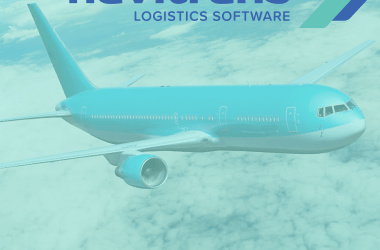The logistics industry has played a key role throughout the COVID-19 pandemic. With vaccine rollout now underway, the logistics and transport companies are now set to aid in perhaps the pandemic’s most crucial stage – transporting vaccines.
Several vaccines have now been approved for use around the world, including Pfizer-BioNTech, Moderna and Oxford-AstraZeneca. More vaccines are expected to be approved for widespread use in the coming months.
Proper temperature storage a major factor in logistics
One key hurdle in rolling out these vaccines is storing them at their proper temperature. The Pfizer vaccine notably presents the toughest logistics challenge, as it is required to be stored at temperatures between –60°C to -80°C. Once delivered to vaccination sites, the vaccine can be stored for up to five days in refrigerated conditions (2°C to 8°C).
Moderna’s vaccine is less demanding as far as required temperature storage, as the vaccine can be kept at temperatures between -25°C and -15°C prior to thawing in a refrigerator.
While Oxford-AstraZeneca's vaccine can be stored at refrigeration temperatures, thus easing the burden on logistics, efficient transport is still crucial, given the amount of countries expected to approve it for widespread use.
WHO recommends outsourcing to private sector
The World Health Organization recently shared the benefits of outsourcing the vaccine supply chain and logistics to the private sector. Among their key benefits listed were an increased efficiency and focused specialisation. With private companies having access to the proper resources needed for widespread distribution, governments can devote more time and energy to “better focus on defining policies and strategies to provide high-quality vaccination services.”
The WHO also stated that private companies can have more efficient processes in place, that make best use of their available resources and technologies. This can lead to reduced wastage and ensure best management practices. Ultimately, it can also prove to be more cost effective, as the service providers accept responsibility for investment in cold chain equipment, refrigerated trucks, fuel and skilled logisticians, for which the government pays an agreed fee.
Final thoughts
The logistics industry has been playing a major role in helping countries navigate throughout the pandemic, as essential goods needed to be delivered through massive shutdowns. Logistics, transport and freight forwarding businesses were deemed essential and have continued to operate with enhanced safety precautions.
Now an important task lies ahead for the industry; ensuring an efficient vaccine supply chain in order to help immunise the general population and navigate an end to the pandemic. It’s a challenge the logistics industry is ready to face.
About Navitrans
Navitrans is the most complete out-of-the-box logistics software on the market today, with extensive and easy-to-use functions for road transportation, sea and air freight, intermodal transport and public warehousing. It is developed on Microsoft Dynamics 365 Business Central and available on-premise or as a hosted solution. Call us today toll-free at +32 56 73 20 10 or email us at info@navitrans.eu and we will be happy to walk you through our full suite of solutions.



